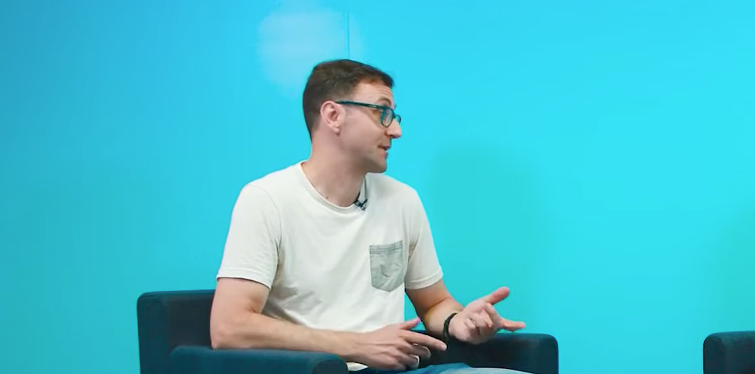What are the UOC's learning resources like?
Digital(Link opens in a new window)
«Digital, accessible anywhere, anytime and from any device»
Carles Sigalés, vice president for Teaching and Learning (years 2013-2023)

.
They adapt to you(Link opens in a new window)
«Multi-format, multi-device resources adapted to students' needs»
Lourdes Guàrdia Ortiz, associate dean for teaching and member of the Faculty of Psychology and Education Sciences
Innovative(Link opens in a new window)
«We make sure that our learning methods keep improving, implementing educational innovations»
Sílvia Sivera, director of the eLearning Innovation Center (eLinC)
Linked to the professional world(Link opens in a new window)
«Students will find them in their workplace, which means they contribute to their employability»
Ciro Llueca, director of the Library and Learning Resources department (years 2015-2022)
The enrolment fee includes everything students need to pass their courses
/sites/biblio/.content/
/sites/biblio/en/
Opinions about our learning resources
«I'd highlight the great variety of content we have, ranging from animations to computer science books available in the UOC Library»
Íñigo Álvarez, student on the Master's Degree in Data Science
«I like the fact that some materials are theoretical and others are more dynamic, and I'd highlight the variety and quantity of resources»
Ester Cucurella, student on the Bachelor's Degree in Humanities
«I value the flexibility of the resources, as you can listen to many of them in audio format»
Carla Wieden, student on the Joint Master's Degree in Cultural Management
«I'd highlight the fact that the resources are digital, so any student can use them, wherever they are»
Nella Escala, tutor of the Master's Degree in Education and ICT (E-learning)
/sites/biblio/.content/
/sites/biblio/en/
We work to make our resources…

.
Global(Link opens in a new window)
«Resources that reflect people's different social backgrounds and allow everyone to feel represented»
Virgínia Sánchez Román, director of international projects (Europe), Globalization and Cooperation department
Egalitarian(Link opens in a new window)
«Egalitarian and inclusive, and that they highlight the role of women»
Maria Olivella, coordinator of the Equality Unit, and Mireia Castillón, who deals with the gender perspective in the Library and Learning Resources department
Accessible(Link opens in a new window)
«Accessible to everyone»
Accessibility makes it possible for UOC students to grasp and understand learning resources and interact with them, regardless of the technical means used.
/sites/biblio/.content/
/sites/biblio/en/
Types of resources and examples
Examples of learning resources made at the UOC(Link opens in a new window)
A sample of the types of resources that are developed or updated at the university.
Resources
Videos(Link opens in a new window)
Films, interviews, documentaries, talks, lectures and animations.
Infographics(Link opens in a new window)
A graphic representation for understanding the concepts covered in the classroom.
Websites(Link opens in a new window)
Visual resources which students can use to browse content at their own pace.
Software
The enrolment fee includes software licences so that students can work with professional tools, including MATLAB.
Podcasts(Link opens in a new window)
We add a voice to our educational materials, with interviews and programmes in audio format.
Databases(Link opens in a new window)
Collections of specialized content, including articles, books and regulations.
Ebooks (Link opens in a new window)
Digital books from leading academic publishers.
Modules(Link opens in a new window)
Manuals available in multiple formats, ranging from PDF to web and audio books.
Business games and simulators
Online games which reproduce real business environments, in which the players can manage companies.
Journals and articles(Link opens in a new window)
Specialized publications in the UOC's different fields of study.
Others
There are many more resources in the classrooms, including case studies, psychological tests and quizzes, etc.
Examples
Repositorio de herramientas digitales (Toolkit)(Link opens in a new window)
A website with useful tools for the academic and professional world, for creating mind maps, editing images and taking notes.
¿Por qué la reflexión siempre va ligada a la acción?(Link opens in a new window)
An infographic offering critical perspectives on community psychology.
Psychology test library(Link opens in a new window)
Tests, batteries of tests, quizzes and assessments from the fields of psychology and speech therapy, accessible from the Library.
Aranzadi Instituciones(Link opens in a new window)
A legal database used by professionals, containing Spanish legislation and jurisprudence.
Art Toolkit(Link opens in a new window)
A tool box with materials, instruments and utensils for drawing, painting and video editing.
Las fuentes de información en la era digital(Link opens in a new window)
An infographic with everything you need to know when searching for information.
Cortometraje de bajo presupuesto(Link opens in a new window)
A manual available in multiple formats, ranging from PDF to an audio book.
Taller de Arte Sonoro(Link opens in a new window)
Video tutorials and podcasts focusing on sound: synthesizing sound and experimental music.
Recursos y referentes de fotografía(Link opens in a new window)
A website on the basics of photography and leading figures in the field.
Toolkit de género(Link opens in a new window)
A website with tools and information to help communication professionals to adopt the gender perspective.
Design Toolkit(Link opens in a new window)
The ABC of user-centred design. A tool box for use in design projects containing information and resources.
Films, series and shorts from Filmin
Students learn with videos from the Filmin film platform.
Las finalidades de la enseñanza de las ciencias sociales(Link opens in a new window)
A video for future teachers to reflect on the teaching of social sciences in primary education.
/sites/biblio/.content/
/sites/biblio/en/
How are our learning resources produced?
«How do you explain mathematical formulas to visually impaired people?»
Teresa Sancho, full professor in the Faculty of Computer Science, Multimedia and Telecommunications
«We produce our videos as if we were an audiovisual production company»
Elisenda Díaz, head of learning resources projects (years 2021-2022)
Accessible(Link opens in a new window)
«We analyze the accessibility of learning resources»
Marc Romero, working group on people with disabilities
Sílvia Mata, working group on people with disabilities (years 2021-2023)
Find out what the Library can offer!(Link opens in a new window)
Did you know that being part of the UOC means you have thousands of digital books, articles, journals, databases and videos just a click away?
The kitchen for UOC learning resources(Link opens in a new window)
A team of experts works to prepare resources for the start of the semester.
/sites/biblio/.content/
/sites/biblio/en/
The figures
- €6m
Annual investment by the UOC in learning resources
- 7m
Downloads from the digital collection
- 36,212
Learning resources produced in-house and in use in classrooms
- 130,094
Resources with rights management
- 5,000
Authors and at least 43 different nationalities
